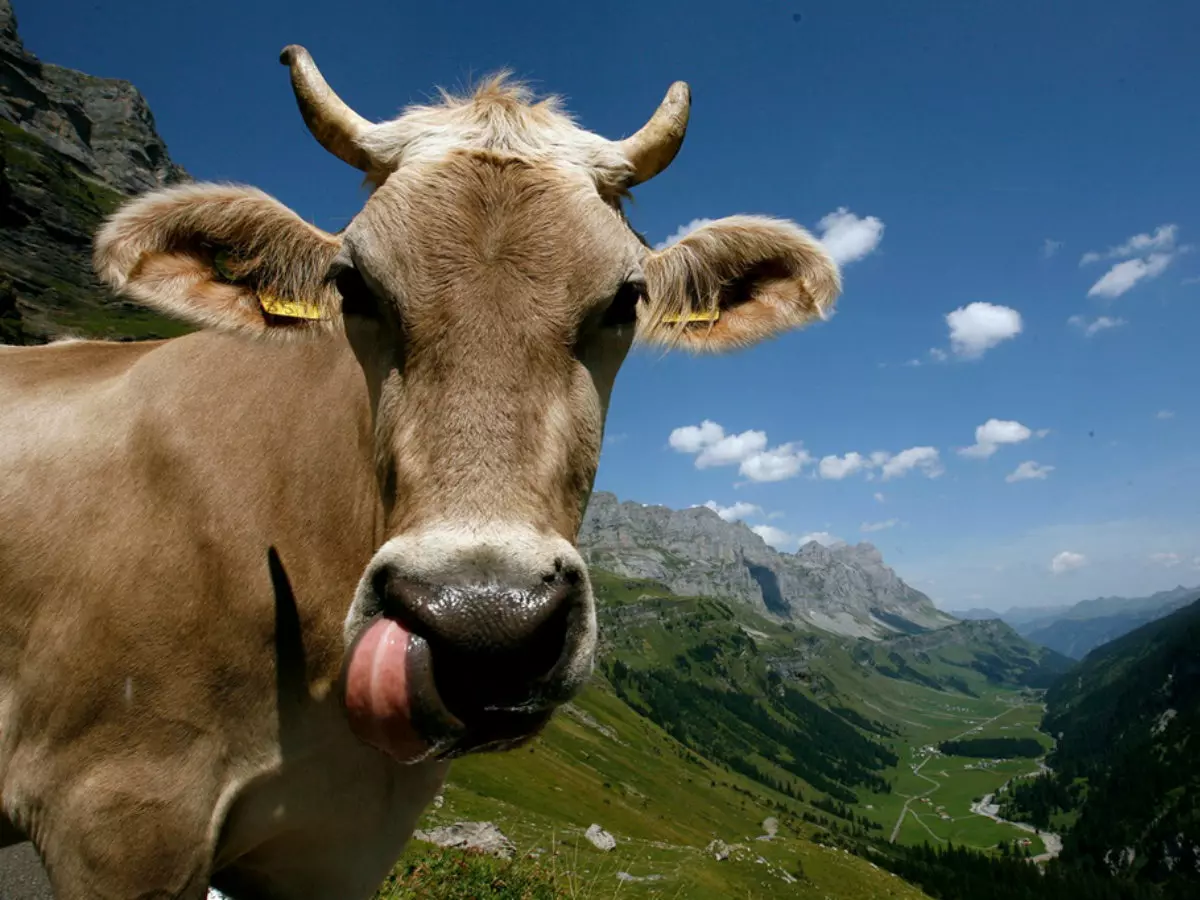Cows May Actually Help Reduce Global Warming, As They Put Carbon Back Into Soil They Graze On
We've read that cows are bad for global warming because they burp out methane gas, which traps heat more in the air, and their grazing land rules it out to be used as agricultural bent. But a new research claims that cows are in fact essential for reducing global warming, as they help reintroduce carbon from the air into the soil they graze on -- besides just being an abundant source of meat for the world to eat.

We've read that cows are bad for global warming because they burp out methane gas, which traps heat more in the air, and their grazing land rules it out to be used as agricultural bent.
But a new research claims that cows are in fact essential for reducing global warming, as they help reintroduce carbon from the air into the soil they graze on -- besides just being an abundant source of meat for the world to eat.
 Getty
Getty
Researchers at UC Davis claim that a single cow can belch roughly 100 kg of methane each year, and since there are over a billion cows on the planet, that's releasing a lot of greenhouse gas in the atmosphere which contributes to global warming.
This has been the accepted wisdom so far. But a whole new branch of research from Texas A&M University led by Professor Richard Teague argue that cows are in fact essential for re-introducing and trapping carbon back into the soil -- which is more than the warming gases cows and other cattle emit, according to a CNN report.
Their argument is based on a logical principle -- most cattle around the world sit inside cattle sheds or domesticated cattle pen, standing and sitting in a confined space their entire life. That's not how cows were meant to evolve -- feeding from a conveyor belt of sludge and releasing harmful methane into the atmosphere. No, their role in the natural scheme of things is to graze in open grasslands, and trap carbon into the soil, which then becomes beneficial for agriculture.
During his research, Professor Teague found that 30-40% of the earth's surface is natural grassland meant for cattle and other animals to graze on, and this way they can be an asset for ensuring food security for humans.

Plants absorb carbon dioxide from the air and trap it as carbon in the soil through their roots. Scientists claim that the soil's capacity to carbon is much more than in the atmosphere, and that right now there's three-four times more carbon trapped in soil than in the air.
What's more, cow dropping contain carbon as well. By encouraging cattle herds to graze in the wild, they reintroduce carbon into the land which is then better conducive to agricultural needs, ensuring a clean and good crop without excessive harmful fertilizer use.
So as it turns out, cows aren't the problem anymore, but they well may be the answer to arrest global warming and regenerate land ripe for agriculture.
